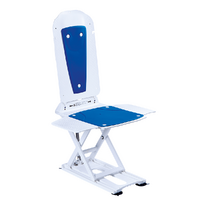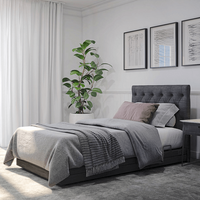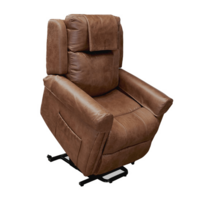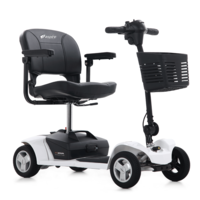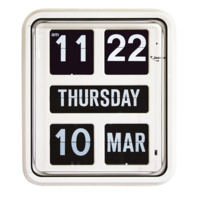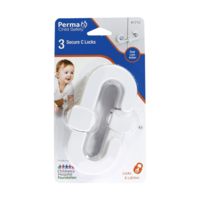Caring For Someone with Dementia
Dementia affects nearly half a million Australians and that number is set to double over the next two decades. Every day, 250 Australians are newly diagnosed with dementia. It’s a debilitating condition that not only affects the person affected by it but also their loved ones.
Dementia actually refers to a collection of symptoms characterised by a decline in the brain’s function. Dementia can affect memory, cognitive function and the ability to carry out daily tasks.
The most common type of dementia is Alzheimer’s disease, which is caused by a progressive degeneration in the brain’s cells. Early signs of Alzheimer’s disease can include difficulty remembering things, getting lost in usually familiar areas, loss of spontaneity and increasing irritability.
Over time, as brain degeneration progresses, these symptoms can become more pronounced and the individual may be unable to carry out daily tasks or need more frequent care.
For many people, their first experience of dementia is when a loved one is diagnosed with it. While a diagnosis can offer some relief in explaining changes in behaviour, it also brings with it new challenges.
The vast majority of people with dementia rely on an informal carer – such as a partner or adult child – to take care of them. The debilitating nature of the condition means that this role can become more demanding over time.
For caregivers, it’s important to understand not only how to take care of someone with dementia, but also how to take care of yourself as you take on this task.
Support when caring for someone with dementia
Dementia Australia offers counselling for people living with dementia and their carers. Their website has lots of help sheets to help family and friends understand the type of dementia and ways to assist the person to remain safe and as independent as possible. It also gives strategies for friends and family to help maintain meaningful interactions.
Carer Gateway is another organisation that works specifically with carers to provide counselling and support.
Enabling Environments also is a good website with hints to assist a person with dementia to maintain their independence in their own home for as long as possible. By enabling the person with dementia to maintain their abilities, you’ll find that your requirements as a carer can be reduced.
Respite care can be a valuable resource. For people with dementia, it provides an opportunity to enjoy activities away from their carer and family. And for their carers, it’s a great way to take time out for other activities, like work, exercise or holidays.
As well as Dementia Australia and Carer Gateway, My Aged Care can also help you find out about respite care in your area.
Make time for things that bring you joy
Caring for someone with dementia can be challenging, but it can also be incredibly rewarding. While the disease may cause physical and cognitive changes, underneath they are still the same person you love with many of the same interests and personality quirks.
It’s important to continue to enjoy your time together and look for activities that spark joy. Playing a simple board game or engaging in hobbies such as painting, gardening or playing a musical instrument can be a wonderful way to connect. Going for a walk outside or catching up with friends can be an opportunity for social contact. Flicking through an old photo album can be a wonderful way to connect. Even if the person with dementia doesn’t remember the activity, later on, it’s still a moment to be enjoyed.
Dementia care aids
Many of the challenges of caring for someone with dementia relate to their diminishing capacity and mobility. Because dementia can affect both physical and cognitive function, this can put added stress on their carer. People with dementia can often put themselves in dangerous situations unwillingly, which can be difficult to manage.
It can also be frustrating for the person with dementia as they struggle with everyday tasks.
Dementia care aids can be incredibly helpful for both the person with dementia and their carer. Encompassing a wide range of products, dementia care aids are designed to create a safe environment at home.
These simple and affordable dementia products can help manage symptoms, reduce anxiety and increase comfort.
Calendar clock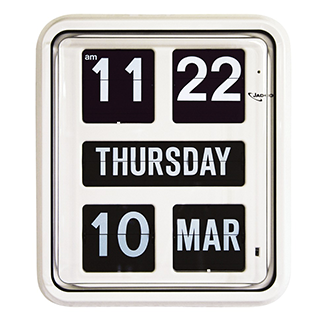
People with dementia can have difficulty processing time and date information. A clock with a large display that clearly shows time and date information can help them focus on the key information. This allows people with dementia to maintain a routine and understand what may be coming up next (such as mealtimes or appointments), helping them feel more in control of their life.
Safety is a key concern when caring for someone with dementia. Memory loss and cognitive decline can lead to potentially unsafe situations, such as forgetting the oven is on, eating uncooked food, or overheating meals in the microwave leading to burns. Cupboard locks are a simple tool designed to restrict access to potentially unsafe items.
Mattress protectors
Dementia can lead to incontinence in some individuals – whether from loss of bladder control or simply because the individual forgets to use the bathroom. Mattress protectors are a helpful aid that can make cleaning up accidents easier. They can be placed on the bed or an armchair
September marks World Alzheimer's Month. These events raise awareness of dementia and the challenges that face people with the condition and their carers.

















